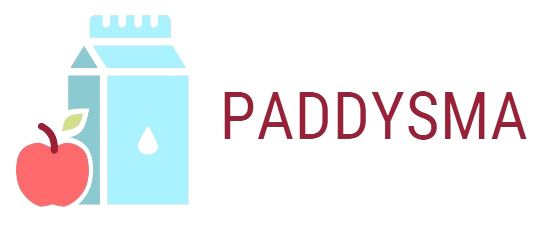Physical strength, stamina, and agility are essential for any athlete looking to achieve top performance. But how can they develop and enhance these attributes? Functional training, which emphasizes specific exercises and techniques, can help athletes reach their highest level of performance. Discover the important role functional training can play in an athlete’s training program in this article.
1. Exploring the Benefits of Functional Training for Athletes
Functional training offers athletes a range of benefits, making it an ideal choice for those looking to improve their performance. Here are some of the advantages for athletes:
- Improved Mobility: Functional exercises target a wide range of muscles, joints, and movements. This training focuses on enhancing an athlete’s mobility, allowing him/her to perform more efficiently.
- Core Strength: Focusing on exercises which challenge an athlete’s core builds support, stability, and endurance. It is beneficial for all types of athletes, including those participating in weightlifting, gymnastics, and martial arts.
- Functional Endurance: Functional workouts are designed to strengthen an athlete’s physical capabilities and increase his/her endurance. Plus, the broad range of exercises helps to reduce the risk of injury and prevent muscle specificity.
Additionally, functional-style training can help athletes as they transition from one sport to another. A functional-based strength program is very individualized, making it easier for athletes to gain the skills they need for a new sport.
In the end, functional training offers athletes an effective and comprehensive way to improve their performance and reach their peak potential. This type of workout is not only great for athletes but also for anyone looking to become healthier and stronger.
2. Key Components of an Effective Functional Training Program
Functional training is an effective way to build strength and endurance, as it focuses on whole-body movements that replicate everyday activities. To truly maximize the potential of a functional training program, it’s important to make sure it includes the following key components:
- Stability – When training for function, you need to make sure that exercises engage stability muscles, such as the core, in order to avoid injuries.
- Strength – In order to improve performance, strength must be incorporated into a functional training program. This can include exercises that focus on strengthening the major muscle groups.
- Mobility – Ensuring that joint mobility is improved through a training program is an important aspect of injury prevention and is essential for functional fitness.
When designing an effective functional training program, it’s important to remember to focus on conditions and movements found in everyday life. To achieve this, exercises should usually use free weights and bodyweight movements, such as squats, planks, and other compound exercises.
It’s also important to make sure you are using progressive overload as you would with any other type of workout program. This will ensure that your body is constantly being challenged and that you are making progress towards improving your fitness.
3. Getting Ready to Unleash Your Maximum Potential
You’ve planned, prepared and now have the motivation to reach success. It’s time to get ready to unleash your maximum potential. Here are three ways to help you make the most of your new adventure:
- Set short-term goals: It can be easy to get overwhelmed by your long-term goals, so break them down into manageable steps. Short-term goals can help support your progress and give you a sense of satisfaction as you reach each step along the way.
- Understand your strengths: You have qualities and talents that you can use to help you succeed. Better understanding what these are can help you make the most of your achievements and help guide you towards desired outcomes.
- Try something new: Taking risks and feeling uncomfortable can help you gain new perspectives and help you be open to unfamiliar ideas. Whether it’s enrolling in a class or trying a new hobby, pushing your own boundaries can help you discover more about yourself and the world around you.
Take each day a step at a time and prepare to unleash your potential. A journey of a thousand miles begins with one step. Now is the time to take that step and start the journey towards success.
4. Crafting a Training Plan to Maximise Performance
Creating an effective training plan is essential to maximise the performance of any athlete or team. Here are some tips on how to get it done:
- Assess the skills of the athlete.
- Set out the goals that need to be achieved.
- Create workouts that are tailored to the goals.
- Choose exercises that will challenge the athlete.
- Determine the intensity level that will improve performance.
Creating a timeline is one of the most important aspects of a training plan. Decide on a timeline that factors in short and long-term goals. Give yourself enough time to get fit and be ready to compete at the highest level.
Don’t forget to include recovery time in your plan. This is essential to minimize the risk of injury and overall fatigue. Set aside time for rest and recovery and make sure you get enough sleep. This will help you to to stay focused and energized.
5. Unlocking Optimal Performance Through Functional Training
Functional training is one of the most effective ways to unlock optimal performance. It requires the use of multiple muscles to perform a single movement, known as a functional movement, or a complex movement. This type of training helps to improve coordination, agility, and stability, as well as strength and power. Here are five ways functional training can help you as an athlete:
- You can train for any sport: Functional training prepares athletes for the specific demands of any sport, regardless of its specific physical requirements.
- You can improve your body composition: Functional training helps to tone and strengthen your muscles, as well as improve your body composition, helping you become leaner and more agile.
- It improves your balance: Functional training helps improve your balance and stability, helping you to stay steady and strong in any situation.
- It boosts your cardiovascular health: Functional training will get your heart rate up, which can help to improve your overall cardiovascular health and condition.
- It can improve your overall performance: By improving your coordination, agility, and power, functional training can help you achieve peak performance.
At its core, functional training is a type of strength and conditioning program that focuses on training the body for real-world activity. By working multiple muscle groups in combination, you can prepare for any challenge and quickly adapt to new situations.
With proper functional training, you can take your performance to the next level and maximize your potential.
Making functional training part of your regular workout routine can make a huge difference in your performance and help you become a better athlete. With the right exercises and guidance, you can stay injury-free and ensure that your hard work doesn’t go to waste. Start today and reap the rewards of functional training for a lifetime of better athletic performance.


